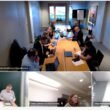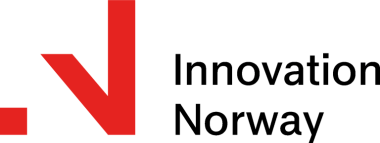In order to strengthen the concept of decent work in Lithuania, the Confederation of Lithuanian Industrialists, together with partners such as the Lithuanian Industry Trade Union Federation (LPPSF), Fellesforbundet – Norwegian Trade Union Federation, and the State Labour Inspectorate (VDI), launched a project titled “FUTURE WORK: DECENT JOB FOR A COMPETITIVE ECONOMY”.
As part of the project, five interactive training sessions on workplace innovation and work organization innovation were organized:
June 1, 2022 – Why are Workplace Innovation and Decent Work important?
June 8, 2022 – How can Workplace Innovation transform your organization?
June 15, 2022 – What are the Elements of Workplace Innovation?
June 22, 2022 – What is People-Centred Change and how do you make it happen?
June 29, 2022 – Open Space.
The training sessions were led by Prof. Peter Totterdill from Workplace Innovation Europe (https://workplaceinnovation.eu/) in the United Kingdom, Eigilė Čygaitė-Elzbergienė, Social Dialogue Expert at the Confederation of Lithuanian Industrialists, and Rasa Rotomskienė, Innovation Expert at the Confederation of Lithuanian Industrialists. Prof. Peter Totterdill is a long-time expert for workplace innovation and work organization innovation at the European Commission, and he also contributed to the development of the European Commission’s Industry 5.0 guidelines for industrial transformation.
The training was conducted in Lithuanian and English.
All training materials are available on the Virtual Learning Platform: http://futurework.lpk.lt/.
The project is funded by the Norwegian Development Agency “Innovation Norway” as part of its program aimed at reducing economic and social disparities in the European Economic Area. In addition to the contribution of the “Fresh Thinking Labs” platform, Prof. Dr. Peter Totterdill, Director of “Workplace Innovation Europe”, has been appointed as a scientific advisor in this project.
Decebt job practices are characterized by work-life balance, diversity and inclusion, job security, a healthy work environment, and employee voice, all essential elements of employee engagement, trust in workplace culture, and conditions for professional development.
Bjørn Gustavsen, the creator of Norway’s workplace environment law, stated that decent job includes qualities such as open communication, freedom in task performance, competency as a basis for decision-making, and a willingness to take risks, including collaboration between organizational leaders and employees, decentralized decision-making, and employee involvement in creating innovations and improvements.
According to the European Commission’s European Workplace Innovation Network (EUWIN), these qualities are also associated with high performance, strengthened innovative abilities, and high quality of work life.
Employers’ and trade unions’ cooperation is strengthening and gaining an increasingly important role in the European labour market, so one of the project’s goals is to strengthen and empower employers’ and trade unions’ cooperation in Lithuania.
The concept and implementation of decent or fair work is not a one-sided action – it requires cooperation, so strong, effective, and action-oriented social dialogue remains an indispensable tool for achieving the goals.
At the project presentation event, Professor Dr Peter Totterdill said:
“The aim of this project is to support bilateral and trilateral social dialogue in implementing the Agenda for Decent Work. We will seek to do this by creating an e-learning program, a knowledge bank, a website hub, which can be supported by social media campaigns, and by offering online seminars/skills strengthening courses on this topic.”
This project is based on long-term scientific research that fair work is the key to a greater competitiveness of companies and businesses by leveraging their employees, greater organizational flexibility, and continuous innovation of products, services, and processes.
However, compared to Norway and other Nordic countries, Lithuania has relatively young traditions of social dialogue at the company level, and the experience and capacity of tripartite dialogue – bringing together employees, employers, and policy makers – also requires strengthening.”
Peter Totterdill concluded: “It is very encouraging that the Workplace Innovation movement continues to grow and expand in Europe, collaborating with partners from various European countries.
The Lithuanian Confederation of Industrialists, together with its partners, believes that the Agenda for Decent Work will help its companies, especially those facing major challenges after the Covid-19 pandemic and the disruptions to their activities, focus on long-term competitiveness and innovation.










